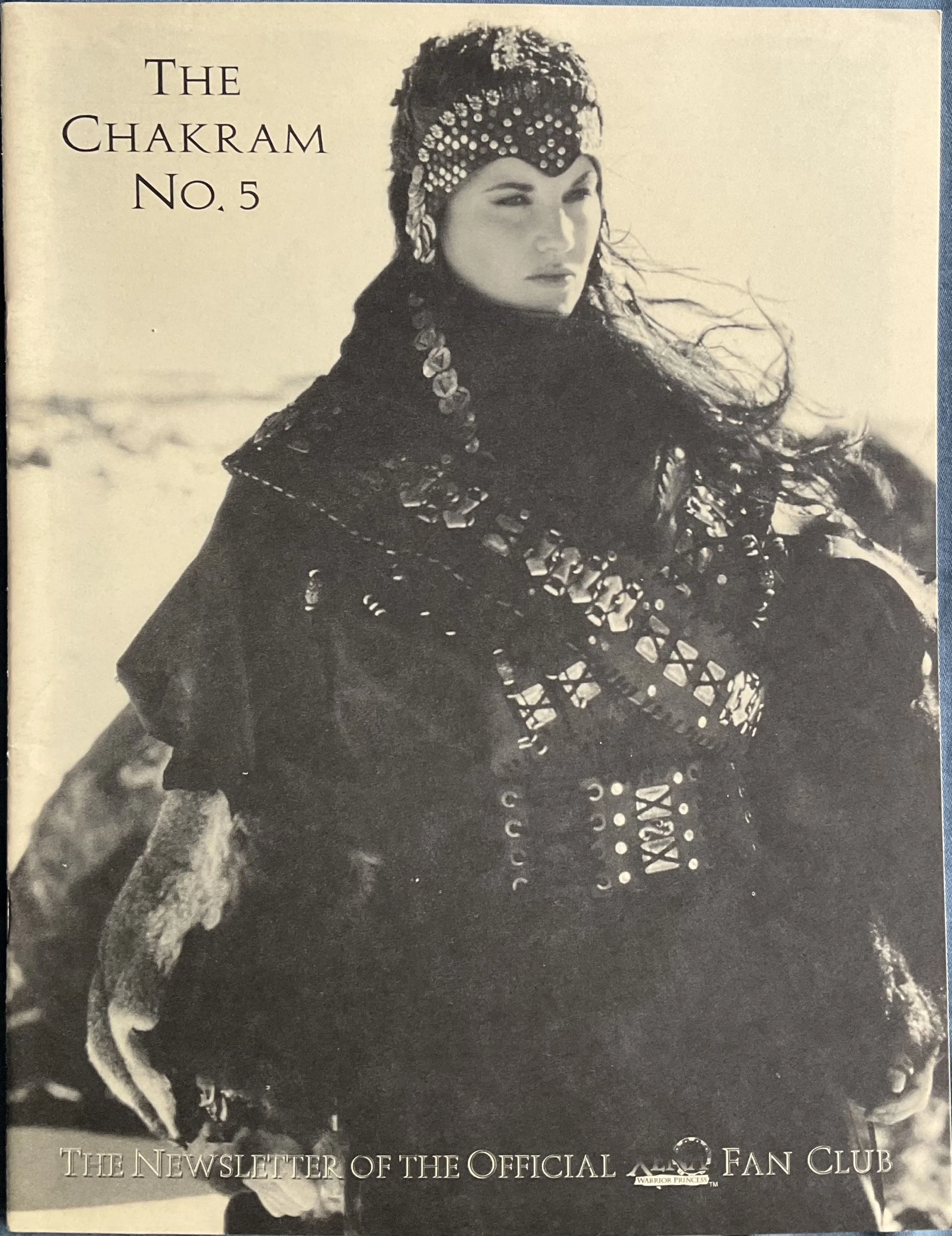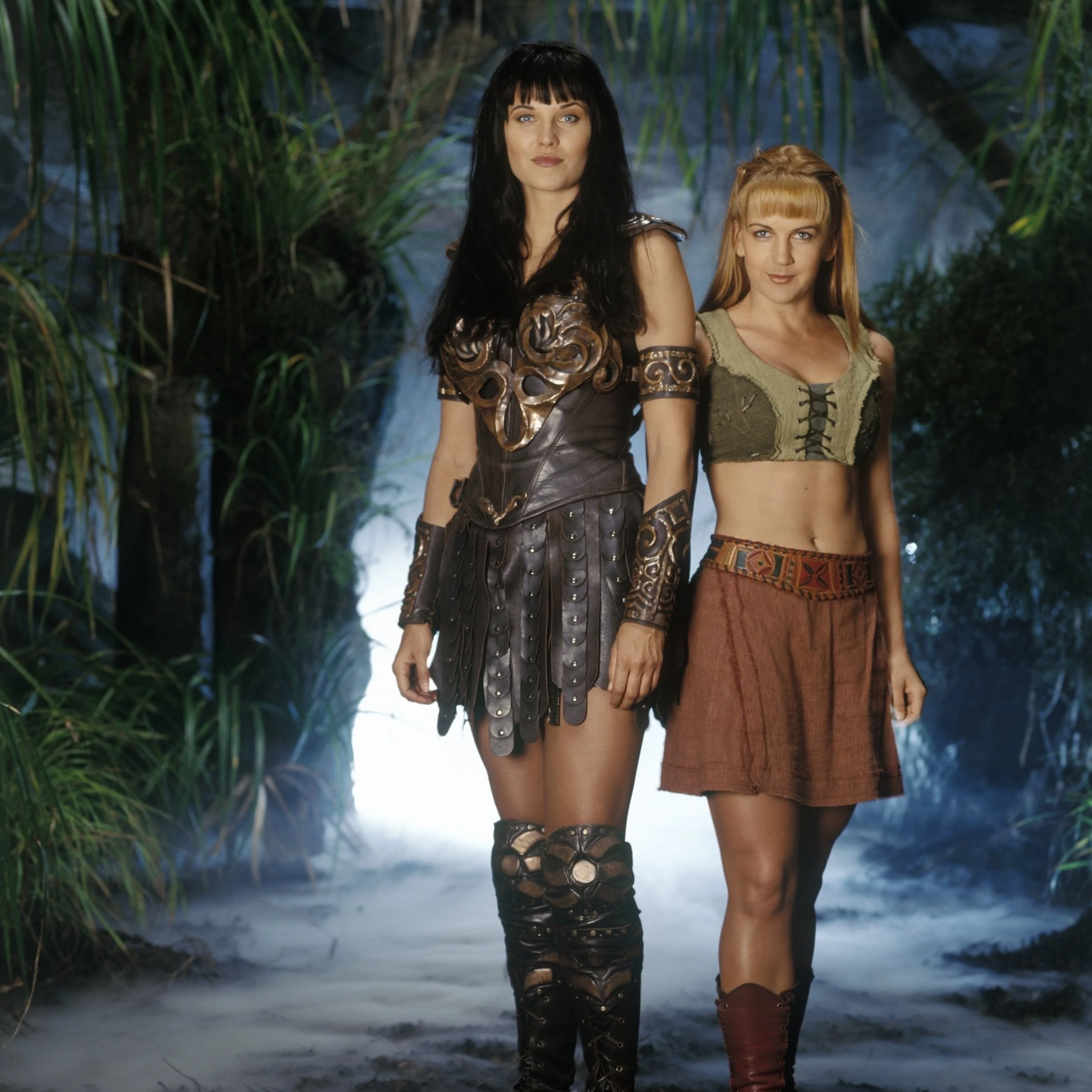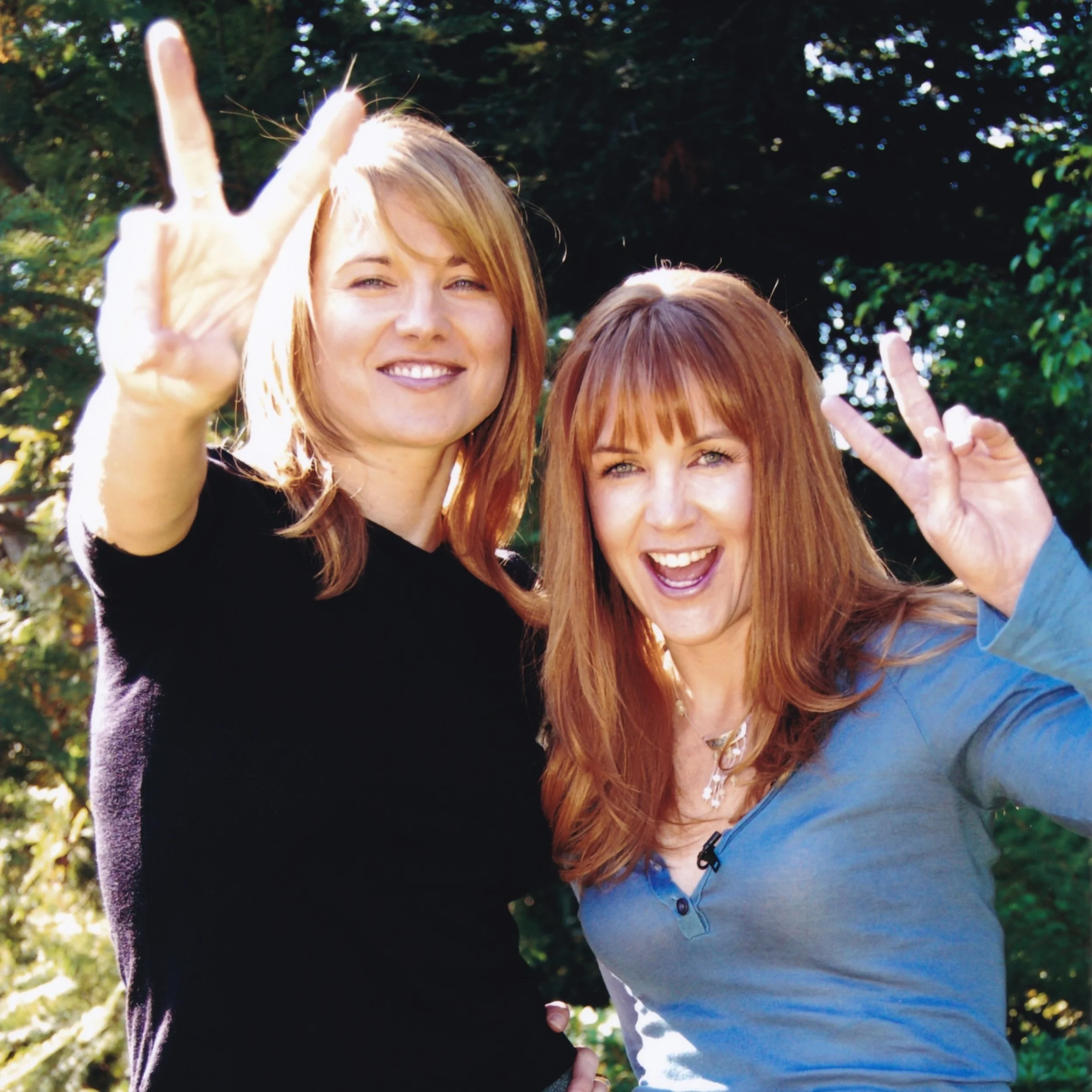Callisto
written by R.J. Stewart - Executive Producer
The Chakram Newsletter: Issue 05
SD: Were you really driving in your car when you invented Callisto?
RJ: I was riding to work and thinking about Xena and her dark past and I thought, "Boy, she really got off easy!” You realize, the back story we paint for her is almost that of a war criminal. And yet she gets an order of 22 episodes and suddenly she’s a nice gal and she didn’t have to pay any consequences for her past misdeeds. I thought there must be somebody out there whose life she ruined who wants to force her to deal with that.
Then I thought, "Wouldn't it be great if it’s a beautiful female warrior" and Callisto came out of that concept. I envisioned the teaser where she would be pretending to be Xena and went from there.
SD: So you weren’t specifically told to think up a villain? This was one of those things going on in your head where you were thinking about the character and what to do with her that season.
RJ: Right.
SD: I wrote a little note to myself on the way over here: “I'm going to be sitting next to the man with the mind that concocted Callisto and there won't even be any safety glass between us!”
RJ: (laughing)
SD: You do realize you could be considered a dangerous fellow.
RJ: I sure could. (laughing)
SD: Did you picture anything visually, physically of what Callisto would look like?
RJ: I’m sure I did, but I don’t remember. Now Hudson is completely it. You can't underestimate the casting. Finding Hudson really made the character. There’s no question. It has to be a marriage of material and casting, but without getting the right actor, it’s just another episode. It became a phenomena because of Hudson.
SD: Probably one of the most intriguing characteristics about Callisto is her integrity. That's a very odd twist on a villain.
RJ: She passionately believes she’s right. She doesn’t think she’s a villain. She really believes she’s justified in trying to avenge herself on Xena. There are societies that are completely committed to revenge as a moral theme. You watch any of the Japanese Samurai movies, you think of the Renaissance dramas, the Shakespearean dramas. “Hamlet” is all about revenge.
Xena was responsible for the destruction of Callisto’s family. Ergo, she’s going to get revenge on Xena. Now, what makes her more than simply a sympathetic character who will force Xena to look into herself, is the fact that that hardship has made her world view so askew she’s willing to kill innocents in order to inflict suffering on Xena. She’s self-righteous. There’s also that love and fascination she has with Xena. She studied Xena so long that she wants to be better than her.
SD: Callisto’s speech on the horse when Xena is taking her into town for trial was totally unexpected for me:
Xena: "What would you do if I set you free?”
Callisto: "You let me go and I will dedicate my life to killing everything you love, your friends, your family, your reputation, even your horse. You see, I am being so honest with you because the idea of your pity is worse than death for me. You created a monster with integrity, Xena. Scary, isn’t it?"
RJ: Good. I really liked that script and that was one of my favorite speeches in it.
SD: Was the character only supposed to be in one episode?
RJ: I always thought of her as a two-episode villain. That’s why I didn’t kill her in the first script. There was a time when it was thought that killing her would be a cool way to end the story. I really resisted that because I had hopes of bringing her back even before we cast her. Of course, when the episode came together, it was a no-brainer that we bring her back. But the problem was that we know Xena kills people. She's not like Batman, who locks people up. She kills them! When I designed “Return Of Callisto” and had Callisto murder Perdicus, Xena had to let her die in that story.
But even before we got to the second story, we knew there had to be a third part because the character was working so well. That’s why Steve Sears came up with “Intimate Stranger.” That was the trilogy. And then Lucy had the accident on the horse. Suddenly Hudson Leick was a major part of the series and we’re so lucky she was.
SD: This was the episode Joxer was introduced. Was he meant to be a continuing character?
RJ: Yes, he was. We wanted a comic character. He is a synthesis of Don Quixote and Sancho Panza. He’s a sidekick like Sancho, but he has the delusions of Don Quixote who thought he was a great warrior. The original idea of Joxer came from Monty Python and the Holy Grail. There’s a knight guarding the Holy Grail and he keeps trying to stop them from getting in the gate. First they chop off one arm and then another and then both his legs. But he just keeps saying, “I’ve got you where I want you now!”
So the idea of Gabrielle continually beating up this character is where I started. In fleshing him out, he became more Don Quixote. It’s very important to understand he really thinks he’s a great warrior. He's always running in where angels fear to tread and then collapses under the pressure. He’s a deluded fool.
SD: Here’s a puzzle the fans have been trying to figure out. How can Callisto catch Xena’s chakram? She didn’t have one to practice with.
RJ: It was my greatest act break (last scene just before a commercial). Act breaks are so important in these kinds of series. And that was a terrific one.
SD: That’s why she was able to catch it?! (laughing)
RJ: That’s it. And I don’t care how she learned to do it. She’s just really good at that stuff. (laughing)
SD: This was the episode with the ladder fight scene.
RJ: That fight sequence is one of those Hong Kong things that Rob wanted me to use. He sent me over the tape of the ladder fight. I don’t even remember what I had as the action sequence, but it wasn’t as cool as the ladder fight. And T.J. Scott (the director) made it work. The director has to make something like that work. And when they can’t, you really appreciate the ones that can.
SD: When I watch that fight, I’m intrigued at the shots that showed Callisto watching Xena and displaying such appreciation in what Xena was doing.
RJ: I believe action has to help tell the story. Anything that’s visual that is cool is T.J.'s influence. I don't write the visuals of the action. But I do try to make the action move the story along and I expect the director to respect that the fight has to do that as well as be a cool action scene.
SD: I know there was a campfire scene in the first episode of the series, but the one in “Callisto” really started the tradition of using these scenes for some of the most memorable glimpses into the relationship of Xena and Gabrielle.
RJ: I was on set when it was filmed. The day was running long, I told T.J., “That campfire scene, it is the scene in the episode. That’s the one you gotta get.” They shot the scene with Gabrielle beating up on Joxer and it's getting later and later and I’m starting to become the Nervous Nellie producer/writer. Kiwi crews go home at a certain hour. It’s not like Golden Time here. You have to have the agreement of everyone on the crew to shoot any overtime.
When everything was set and ready to go, there was maybe a half hour left to shoot it. And then the fire didn’t work! The gas jets were making too much noise and they couldn’t record the actors’ dialog.
And it was too emotional a scene to want to loop at a later time. There was some reason we couldn’t postpone it until the next day and I was saying to T.J. how important this scene was. T.J. was totally unflappable and said, “We'll get it, we’ll get it.”
So they figured out some very clever way to have the fire much more in the foreground away from the microphones. It looks like the fire is right on top of the actors, but it’s actually close to the camera and that got the jets away from Lucy and Renee. They did two takes and the day was over.
Lucy had cried during the scene and as she was walking off the set, she stopped and said to me, “Thank you for giving us material like that.” That was a high point for me.
SD: That was the first time we saw Xena cry. It was so open and raw and compelling.
RJ: The important thing about virtually every single episode we do is that you cannot underestimate the importance of Lucy Lawless. The reason we are a hit is because Lucy is a television star of astounding magnitude. In every episode she makes things work and that is the key to our success. We have to present her with a vehicle appropriate for her talents, so I’m not diminishing what the rest of us do, but ultimately the show's a hit because of Lucy.


